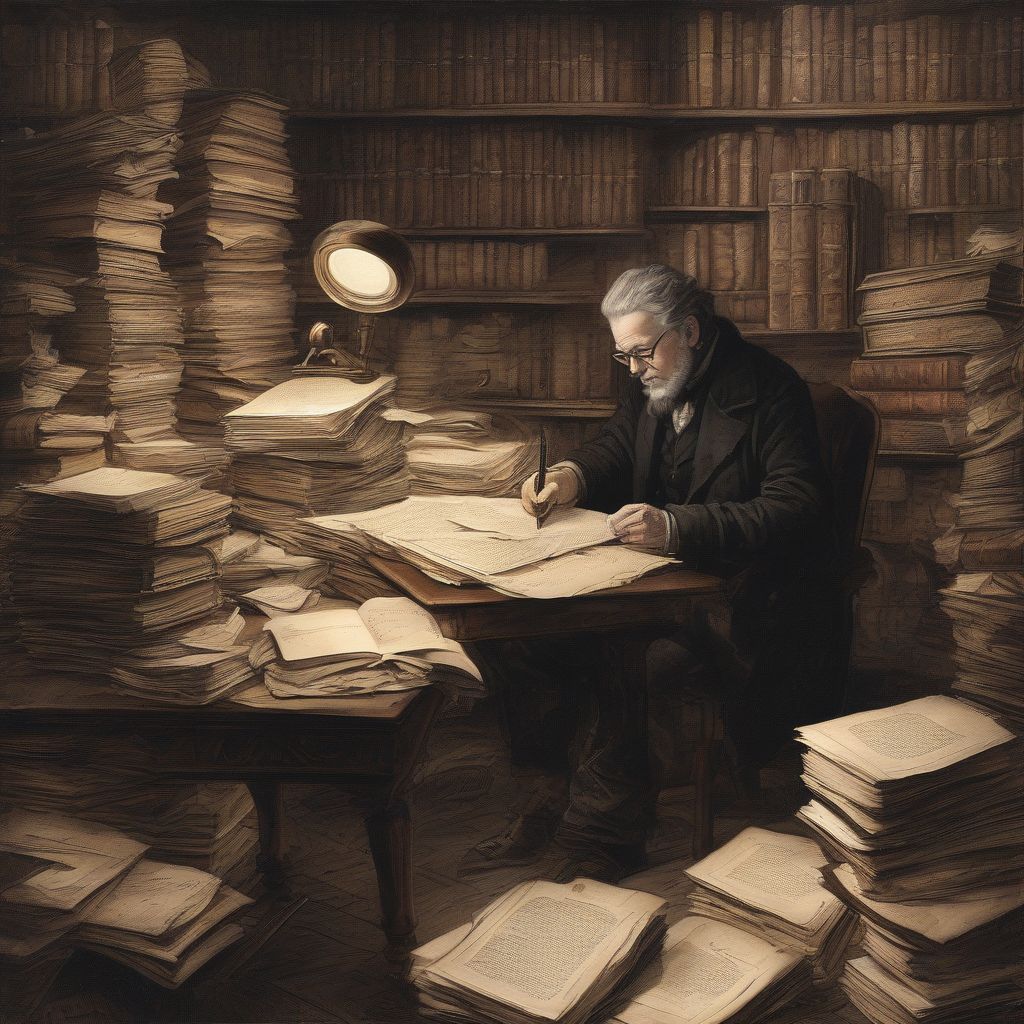Have you ever felt a thrill reading a letter penned by a literary giant, their words transporting you back centuries to witness their thoughts, feelings, and dreams? Delving into the personal writings of classic authors – their letters, diaries, and journals – can feel like unearthing buried treasure. It’s a unique opportunity to connect with these influential figures on a human level, understanding their works, and the world they inhabited, more deeply.
But navigating this world of personal writings can seem daunting. How do you approach these texts? What should you look for? Fear not, fellow literature enthusiast! This guide will equip you with the tools and knowledge to confidently explore the fascinating world of classic authors’ correspondence and journals.
Choosing Your Author and Texts
The first step is, of course, choosing who you want to get to know better. Are you fascinated by Jane Austen’s witty social commentary or captivated by the Romantic ideals of Lord Byron? Your initial interest will guide you to the treasure trove of their personal writings.
Once you’ve chosen your author, research available resources. Many libraries and online archives offer digitized versions of letters and journals, making them easily accessible. Here are some helpful resources:
- The Berg Collection at the New York Public Library: Renowned for its collection of English and American literary manuscripts.
- The British Library: Houses an extensive collection of original manuscripts, including many from prominent authors.
- Project Gutenberg: Provides free access to a vast digital library, including many out-of-copyright works and letters.
Approaching the Text: Context is Key
Imagine finding a letter with no date, no salutation, and no signature. It would be a fascinating puzzle, but understanding its true meaning would require context. The same applies to the personal writings of classic authors.
Before diving in, equip yourself with some background information:
- Historical Context: Understanding the social, political, and cultural landscape of the time will illuminate the author’s words. Imagine reading Virginia Woolf’s diaries during World War II without understanding the historical weight of that era.
- Author’s Biography: Knowing key events in the author’s life, their relationships, and beliefs, will provide a framework for understanding their personal writings.
- Literary Context: How do the themes, ideas, and writing style in the author’s personal writings connect to their published works? Recognizing these connections can enrich your understanding of both.
Reading Between the Lines: Active Engagement is Crucial
Don’t approach these texts passively! Active engagement will make your journey far more rewarding. Here’s how:
1. Pay Attention to Details:
- Dates and Locations: Where was the author when they wrote this? How might their surroundings have influenced their thoughts?
- Recipient: Who was the intended audience, and how might that have shaped the tone and content of the letter?
- Language and Tone: What does the author’s choice of words reveal about their emotions, relationships, and worldview?
2. Ask Questions and Seek Answers:
- What surprised you? Did you encounter any contradictions or inconsistencies?
- What did you learn about the author’s personality, beliefs, or relationships?
- How do these personal insights change or deepen your understanding of their published works?
3. Make Connections:
- Cross-reference: Connect the dots between different letters, journal entries, and the author’s published works.
- External Research: Don’t hesitate to consult biographies, critical essays, and historical sources to gain a richer understanding of the text.
 Reading Letters and Journals
Reading Letters and Journals
Unveiling Hidden Gems: What to Look For
As you delve deeper, be on the lookout for these treasures:
- Creative Process: Discover early drafts, deleted scenes, and reflections on the writing process.
- Personal Relationships: Gain insights into the author’s friendships, loves, and family dynamics.
- Social Commentary: Uncover the author’s views on the social and political issues of their day.
- Historical Insights: Experience history through the eyes of someone who lived it, gaining intimate glimpses into everyday life.
From Understanding to Appreciation: The Rewards of Exploration
Studying the personal writings of classic authors is a rewarding endeavor. It’s a journey of discovery, allowing you to:
- Connect on a Human Level: See beyond the literary figure and understand the complexities of the individual behind the words.
- Gain a Deeper Understanding: Unearth hidden meanings and appreciate the nuances of their published works.
- Broaden Your Historical Perspective: Experience history firsthand through the eyes of those who lived it.
Conclusion: Embark on Your Own Literary Adventure
Just like preparing a nutritious meal involves more than just gathering ingredients, understanding a classic author goes beyond reading their published works. By venturing into their personal writings – their letters and journals – you unlock a deeper level of understanding, connection, and appreciation. So, grab your literary magnifying glass, and embark on your own exciting journey of discovery! What hidden gems will you unearth?
[amazon bestseller=”classic literature”]
